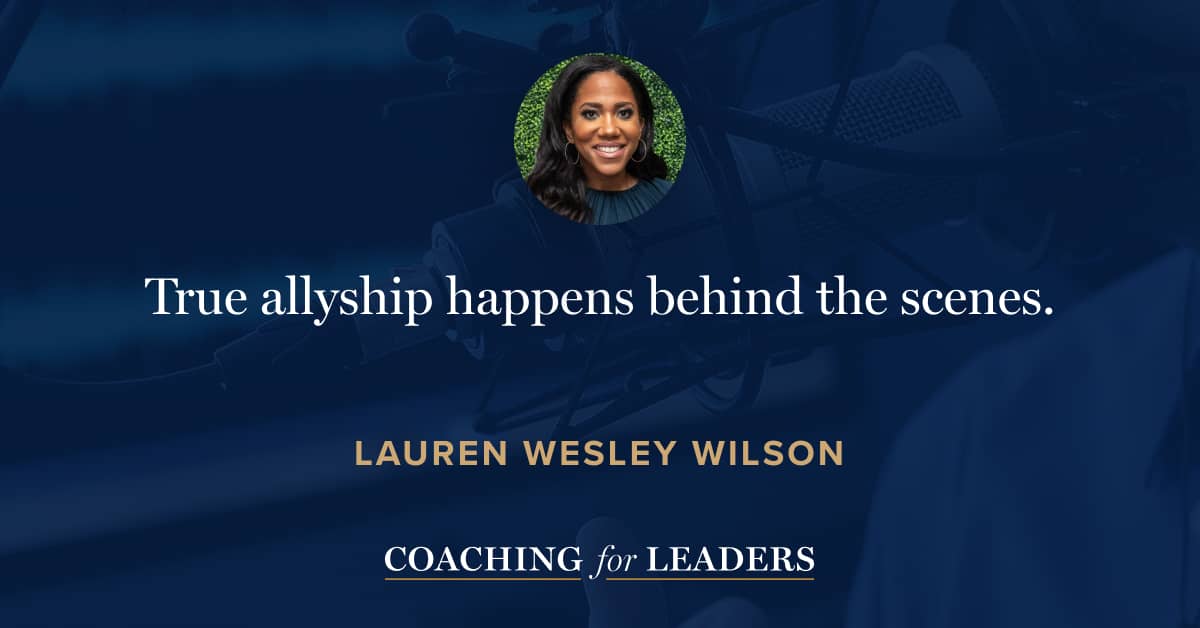Lauren Wesley Wilson: What Do You Need?
Lauren Wesley Wilson is a leading thought leader on media relations, diversity and inclusion, and crisis communications. At 25, she became the founder and CEO of ColorComm Corporation. Prior to that, Lauren worked as a communications strategist at a prestigious crisis communications firm in Washington, D.C.
Lauren has been featured in The Washington Post, Forbes, and People, as well as on MSNBC and CNBC, and more. She has been recognized by PR Week’s 50 Most Powerful in PR, Ad Age’s Women to Watch, and New York Women in Communications. She is the author of What Do You Need?: How Women of Color Can Take Ownership of Their Careers to Accelerate Their Path to Success*.
Many of us wish to be good allies in the workplace, especially to those who are underrepresented. Yet, what we assume that means isn’t always what’s most wanted or needed. In this conversation, Lauren and I discuss what leaders and peers can do to be better allies.
Key Points
- Instead of asking “How can I help?” consider, “What do you need?” That’s more likely to generate specific actions.
- Women of color feel like they are putting in tons of work into relationships with the majority culture, but it often feels unreciprocated.
- White folks think of allyship as speaking out against discrimination. Women of color say it’s way more critical to advocate for new opportunities.
- Tie allyship to economic goals: conference attendance, nominations for recognition, inclusion on high-profile committees, and position/promotion considerations.
- Make invitations to people of color to be at the table. This contributes more substantially than proclamations of support.
- When you make a mistake, apologize, own it, and move on. Don’t tell a story to explain yourself.
Resources Mentioned
- What Do You Need?: How Women of Color Can Take Ownership of Their Careers to Accelerate Their Path to Success* by Lauren Wesley Wilson
Interview Notes
Download my interview notes in PDF format (free membership required).
Related Episodes
- The Way Managers Can be Champions for Justice, with Minda Harts (episode 552)
- End Imposter Syndrome in Your Organization, with Jodi-Ann Burey (episode 556)
- How to Respond Better When Challenged, with Dolly Chugh (episode 615)
Discover More
Activate your free membership for full access to the entire library of interviews since 2011, searchable by topic. To accelerate your learning, uncover more inside Coaching for Leaders Plus.





